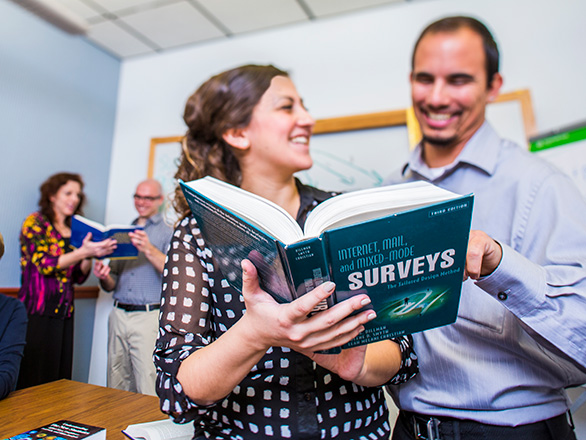Sociology is a popular major at the University of Nevada, Reno and is an appropriate field of study for many students that pairs well with anthropology, communication studies, criminal justice, gender, race & identity, political science, psychology and more. Students who graduate with a BA in sociology have a variety of career options such as domestic violence victims advocate, program evaluation researcher or marketing analyst.
The department offers a B.A. in sociology, a B.A. in social research analytics, a B.A. in Secondary Education and Sociology (Packteach), an M.A. degree in sociology, a BA/MA accelerated program, and two minors: a Sociology minor and a Social Research Methods and Applied Statistics minor. The department also participates in the Social Psychology Interdisciplinary Ph.D. Program.
Sociology is the scientific study of human societies and how they develop, are maintained, and change. Sociology analyzes a range of human social behavior from social interactions between individuals to global social processes, often focusing on the causes and consequences of social inequalities. Areas of sociological interest include gender, race, social class, culture, deviance, education, families, globalization, health, justice, media, politics, religion, well-being, work, sexualities and more.
The Department of Sociology is part of the School of Social Research and Justice Studies, whose purpose is to facilitate and encourage interdisciplinary social research, especially in social justice and related areas and to expedite and promote interdisciplinary teaching and development of degree programs among the constituent organizational elements making up the school.

B.A. in sociology
The Department of Sociology offers a B.A. in sociology and a minor program for students interested in examining social classes, political analysis and the development of modern society.

B.A. in social research analytics
For students interested in using quantitative and qualitative data to gain insights into various social phenomena, informing policy decisions, marketing strategies and social science research, the department offers a B.A. in social research analytics.

Graduate program
The Department of Sociology offers a M.A. in sociology and participates in the Ph.D. program in social psychology. Policy research and the study of social relations are closely examined in the master's program.

New minor in Social Research Methods and Applied Statistics
Ever wonder what kind of job you can get with a liberal arts degree? Consider earning this minor, so you can graduate from college prepared to conduct social research on the job.
This 18-credit minor in social research methods and applied statistics prepares college graduates for entry-level applied and basic social research positions in a variety of settings including government agencies, non-profit organizations and academic research centers.
For more information, contact Marta Elliott, chair of the Department of Sociology at (775) 784-4884.